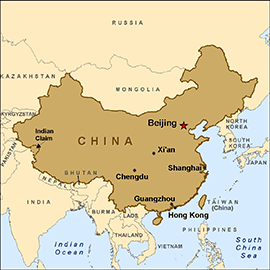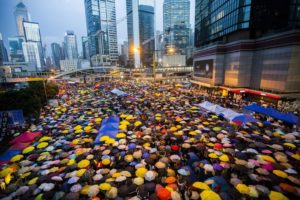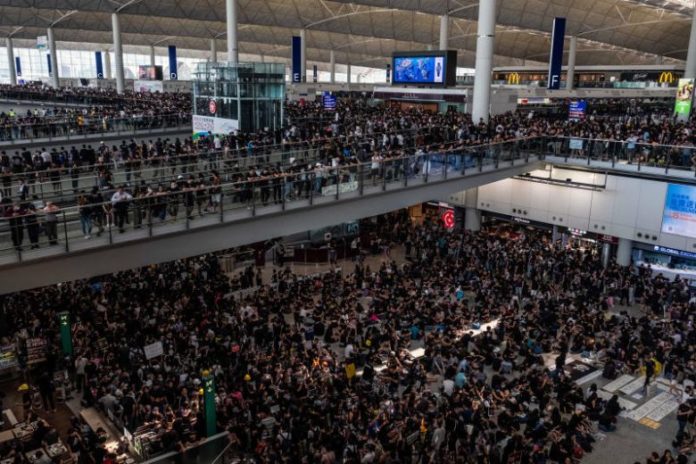On 4 September, Carie Lam, Chief Executive of Hong Kong, announced the scrapping of the Extradition Bill in Hong Kong following months of protests. The Extradition Bill was a bill proposed in February 2019 that would foster cooperation between Hong Kong and different administrative units in China. The Bill was introduced in response to a murder case where a man from Hong Kong, committed murder while on vacation in Taiwan.
The Bill met with heavy opposition was met with heavy protests, mostly seeing the Bill as a step towards eroding Hong Kong’s autonomy and giving more power to Beijing. Carie Lam has been seen in Hong Kong as a pro-Beijing politician.
The Hong Kong protests are a consequence of a complicated history of China with the island, and the island’s relationship with the western world. Defenders of the protest see it as a mass uprising over a looming authoritarian state. However, the full transition of Hong Kong into China, as of now, is still inevitable as the agreement to keep the Hong Kong administration separate from China has less than twenty years left.

Most of the current population of Hong Kong has been culturally, politically and economically distinct from Mainland China. The language spoken in Hong Kong is native to the nearby province of Guangzhou (formerly known as Canton) and is distinct from the majority language and administrative language of China, Mandarin. Mandarin and Cantonese are both called the Chinese language, but they do not have any grammar, pronunciation and little vocabulary in common. Even in Cantonese, because of westernization, Hong Kong Cantonese is culturally distinct. Half of the words used in Hong Kong Cantonese are not used in the Cantonese spoken outside of Hong Kong. Hong Kong Cantonese uses more English words, leading to a variety of English-style Cantonese that is only spoken in Hong Kong.
Historically Hong Kong has been a trading port and is the only part of China that was colonized by the west. Contact with the west began in the early 1800s when demand for tea increased in Britain with the industrial revolution. The trade was controlled by the Qing dynasty and to protect China from foreign traders, they restricted trade to specific regions on the South. These trading areas gave westerners military and economic access to China and were often considered areas of corruption and disrepute. Le Khow, for example, was called the island of pirates and thieves.
Regulation of trade made China a beneficiary of trade with respect to Britain. British traders reported on various small instances to make the Chinese people look like savages to the British press. The propaganda system helped justify invasions of China, which are now called the Opium War, as much of the black market trade between Britain and China was in the form of Opium.
Britain took over the island of Hong Kong and later Beijing. On withdrawal, the British agreed to leave China as mostly independent, though they retained control over Hong Kong. In the agreement, the British “leased” Hong Kong for 99 years.
Decades later, during the Chinese revolution, many of the wealthy Chinese people fled to Hong Kong as a haven. From this point, anti-Beijing feelings in Hong Kong became more intense. This has a longer history though.
From the 1980s, it was becoming more pressing that China would eventually reclaim Hong Kong. As Hong Kong was going to be in the crossfires of Britain and China, negotiations began to determine the conditions of the handover.
This led to the one country two systems agreement with the Thatcher government and the Xiaoping government in 1987 where it was agreed that Hong Kong would be handed over to China as per the agreed upon lease, but the transition of government would not finish until 2047, or 50 years from the handover. Until 2047, Hong Kong would keep its own government, judiciary, and currency. A border between Hong Kong and China would be retained even after the handover.
For the first 10 years after China regained Hong Kong, Hong Kong was seen as a source of economic wealth. The one-country-two systems agreement benefited both the Chinese economy as well as the Hong Kong economy. However, with the penetration of neoliberal economic reforms, the added benefit of keeping Hong Kong as it was started to decline. Chinese manufacturing started to dominate global trade and Chinese cities started to catch up to Hong Kong.
To put this in perspective, Hong Kong has a population of about half a percent of China as a whole. Hong Kong went from contributing almost one-sixth or 18% of China’s GDP at the time of the handover, to almost one-fortieth or 2.5% in 2019. The incentive of China to keep the one-country-two system in the place has been declining.
Since the global 2008 financial crisis, Hong Kong went from contributing to China’s trade surplus to taking away from it. As Hong Kong relies on a relatively free-market style economy and does not have a prominent manufacturing base, foreign powers see Hong Kong as a point which can partially balance economic relations, while the Chinese government sees the Hong Kong economy as a drain, rather than the tap it was before.
 In 2014, the Chinese government published a white paper on the one country-two system, which made recommendations towards the reunification of Hong Kong with China. The Chinese government instituted a democratically elected Chief executive position in Hong Kong, elected by the people of Hong Kong, but would ban anyone contesting elections if they were deemed anti-Chinese. This provoked what later became called the Umbrella protest (called because umbrellas were used to guard protesters against pepper spray).
In 2014, the Chinese government published a white paper on the one country-two system, which made recommendations towards the reunification of Hong Kong with China. The Chinese government instituted a democratically elected Chief executive position in Hong Kong, elected by the people of Hong Kong, but would ban anyone contesting elections if they were deemed anti-Chinese. This provoked what later became called the Umbrella protest (called because umbrellas were used to guard protesters against pepper spray).
The Umbrella protests polarized and galvanized Hong Kong into pro-Beijing and anti-Beijing factions, with the latter having a strong base among students. This base created the groundwork for the recent protests and a stronger suspicion of the Beijing government among the youth.
As the one country-two system has less than twenty years left on it, the integration of Hong Kong with China is on the horizon. Until then, a number of reforms will be proposed and may occur to facilitate the move. As many of the Hong Kong youth have been in opposition to China, we may see more protests against these reforms.



























